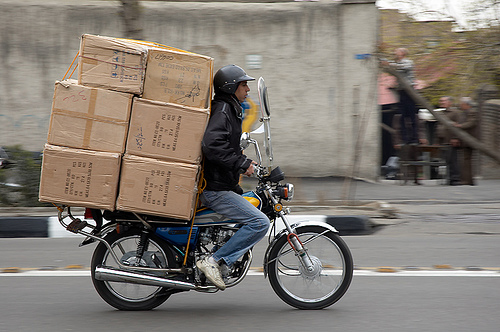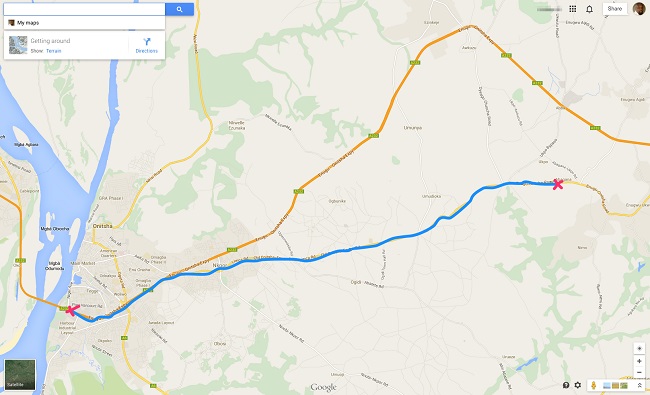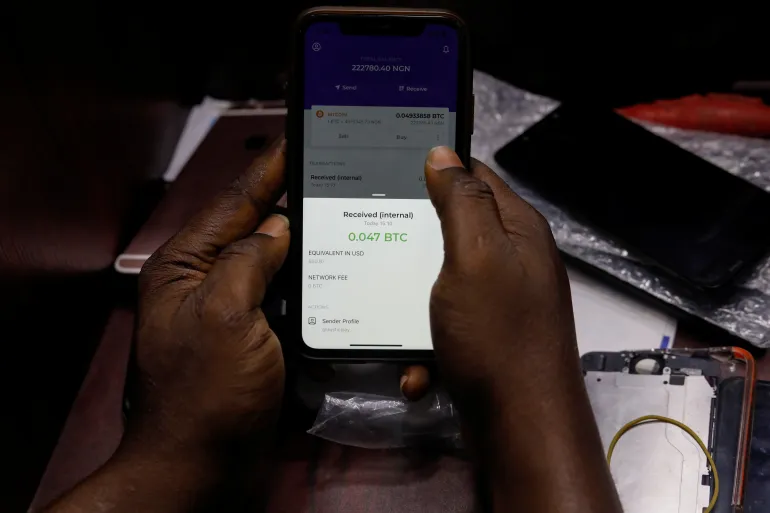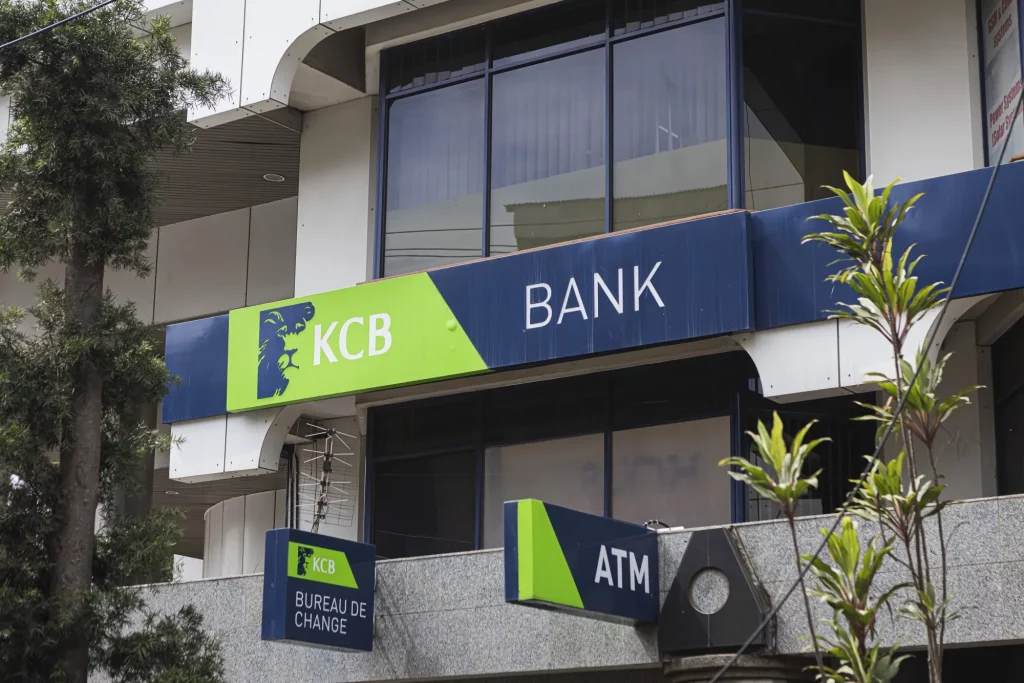Editor’s note: This post was first published on Julius’ blog a month ago. As you’ll see from the first paragraph, the piece is in response to a TechCabal report on Konga.
Earlier today a buddy sent me a message that started with this:
According to Sim, local fulfilment services have been unable to keep pace with the growing volume of Konga shipments, leading Konga to the conclusion that it must create its own logistics infrastructure, a service called Konga Express.
The above statement led to a regurgitation of conversations we have had over the years. These discussions were about whether or not there truly is a logistics problem in Nigeria as many people and startups in the country will have us believe.
Some context:
- Sim – Sim Shagaya (@simdul) is the CEO and Founder of Konga.
- Konga – Konga.com is Nigeria’s equivalent of Amazon.com. Konga recently closed a $40 million USD round of financing to further grow its presence in the country.
To be clear, I don’t believe there is a logistics problem in Nigeria. Could there be areas of improvement? Of course! But to say that logistics is a serious problem that needs to be solved is overly dramatic. I think we spend to much time looking for formal means of doing things in the country when we all still very much live in an informal environment.
On July 2, 2012 I posted this in a group I’m a part of within Facebook:
I’m thinking out loud here. Mark Essien wrote a post about logistics and came up with a viable way to do it in Nigeria albeit capital intensive. Recently, I have been hearing a lot about logistics and delivery in Nigeria these days and I always wonder why is it an issue? CEO’s of startup companies going into e-commerce of physical goods have you asked yourself the following questions?
- How are the folks in Alaba and Onitsha Markets for example moving their goods? (They don’t just have their goods on site, they have other locations as well).
- Do your consumers really need to have the product delivered to their home? If the product is being sold to them at a much cheaper rate than anywhere else in the country, will they be willing to pick up the goods from a location within 10, 20, or 30 km from their homes?
- Can the existing road transport network be used? Every town has a major car park easily accessible to people, are there ways to partner with road transport operators?
- How much is it to use DHL or FedEX? (Have you actually called them to find out? If not, talk to Saheed Taiye Adepoju he has)
- How are goods generally moved around the country?
Are we quick to rule out the existing infrastructure because they are not sexy enough? Are we putting ourselves out of business before we even start the business?
I dont know much, but it seems to me like we are parting putting the cart before the horse here. You dont have to own the full spectrum of things. Start with your core, which is e-commerce and build a brand leveraging the existing infrastructure in place. It may be messy or unreliable but it works and if you generate enough business you can force your vendors to improve things on their end as you will be a significant source of revenue for them.
People’s opinions have not changed much since the post, including mine.
For the past two years, I have traveled back and forth to Nigeria from the United States, flown domestic within the country (Nigeria), used the road transport network and finally relocated to the country early this year. What I witnessed over time was that all the major road transport companies such as Agufore Motors, Autostar, Ekene Dili Chukwu, to name a few offer car park to car park delivery of parcels and letters for a fee.
A “car park” is basically the location from where the transportation company operates out of. Passengers go to the car park to board the vehicle that will transport them to their intended destination. To add some context, pretty much every major city in the country has a car park.
I also found out that most of the domestic airlines transports parcels and letters both formally and informally. (Formally, you go to the airline and ask them to transport the package to the destination Airport. Informally, you ask you buddy to take a package for you on their next trip to a specific destination.)
So what do we have here? Let me illustrate it for you.
Illustration drawn by me, not a 5 year old!!
- E-Commerce Company ABC receives an order and makes it available for delivery. A local logistics vendor picks up the package from the ABC Co’s warehouse and transports it to the Transportation Co’s Car Park or to the Airport.
- Transportation Co loads the package in their aircraft or vehicle and transports it to the destination closest to the customer.
- Transportation Co drops the package off at their cargo holding area for pick up by the customer or a local logistics vendor who will deliver the package to the customer’s residence.
- Customer awaits delivery of the package by the local logistics vendor or has the option of going to the Car Park or Airport to pick up his/her package.
So who are these vendors I speak of? Local Delivery Vendors (Lagos, where most e-commerce companies are based out of):
- Trans Nationwide Express aka TRANEX (http://tranex-ng.com)
- Quo Courier and Logistics (http://www.quonigeria.com)
- 360Delivery (http://www.the360delivery.com)
- Tranzit Deliveries (http://www.tranzit.ng)
- Anyone who operates a Keke
- Anyone who operates an Okada
- Plus a boatload of companies that offer similar services in Lagos
Keep in mind, some of the companies mentioned offer nationwide delivery but may be cost prohibitive or not as reliable when delivering to certain destinations.
Local Delivery Vendors (rest of Nigeria):
- Anyone who operates a Keke
- Anyone who operates an Okada
- Courier and Logistics Co’s that operate in the area
Outside of Lagos, it gets a bit more difficult or should I say expensive to have items delivered to a customers home depending on where the customer resides. If the customer resides within a 5 kilometer radius from the Car Park/Airport it’s not so bad, but the further out you go the customer should assume they will be pay a premium for it. It is for this reason that I am all for having pick up points. The customer can go to the Car Park or the Airport and pick up their delivery. I know I would.
I’ll digress a bit and tell you a story.
A couple of months ago I went to Onitsha and bought a 50” LCD television that I wanted to use at our family hotel. After purchasing the television I hit a snag. It could not fit in the vehicle I came with. No matter how hard we tried, that bad boy was not going to enter the car.
While I was standing there sweating bullets and scratching my head, one dodgy looking chap came up to me and said I should put the TV on an Okada and the Okada rider will deliver it to the hotel for me. I scoffed at the thought and asked for someone with a pickup truck. When the pickup truck arrived, the driver basically told me that I should pay him an arm plus two legs. I guess he looked me up and down and thought he found his cash cow for the day. To my disappointment, no amount of haggling with the guy worked.
So I called for the Okada, who charged me 2,000 NGN (two thousand naira) to deliver the television. By then there was a crowd and everyone including the person I bought the television from was assuring me that nothing will happen to the television and it will arrive in tact. Eventually I gave in and the television was placed on the Okada and off they went.
Long story short, I got back to the hotel and 30 minutes later the Okada and the television arrived as promised.
We all know the transportation companies and airlines we have so there is no need for me to go into further detail about them.
The key here is pricing. I find it hard to believe that after acquiring the assets necessary to operate your own fulfillment service your prices will be cheaper than the existing players in the space. Unless you plan on subsidizing the costs and using the service as a loss leader. In that case, by all means go right ahead.
“Loss Leader”
a pricing strategy where a product is sold at a price below its market cost[2] to stimulate other sales of more profitable goods or services. – Wikipedia
In the case of Konga, they believe they are outgrowing their current vendors at a fast pace, which requires them to go into the logistics space. I will like to know who those vendors are. Did their biz dev guys hit the streets and try to negotiate deals with the folks who are already directly or indirectly in the space? Did they talk to the union of Keke operators? How about the union of Okada operators? I don’t believe they did.
Hey, maybe someone will make life easier for these e-commerce companies and build a “logistics” company on top of the existing network. A logistics broker, if you will. No huge capital outlay, just the power of building/sustaining relationships and negotiating. Determine the most popular routes and negotiate rates to come up with the most competitive prices in the market which of course will include your margin.
Where there is room for improvement in the Nigerian logistics game are areas that rely heavily on the use of technology. Everything is still very much paper based and there is very little automation. Scheduling, Tracking Systems, SMS Alerts, etc will be great value adds.
So, does Nigeria have a logistics problem?
Disclaimer: I have NO experience in the logistics space. These are just super high level thoughts I had and decided to post. Especially since I haven’t posted for a while now.
I will love to know your thoughts and if you are an expert in the space and live within the region, please provide me/us with some industry insights. Thanks in advance.

















